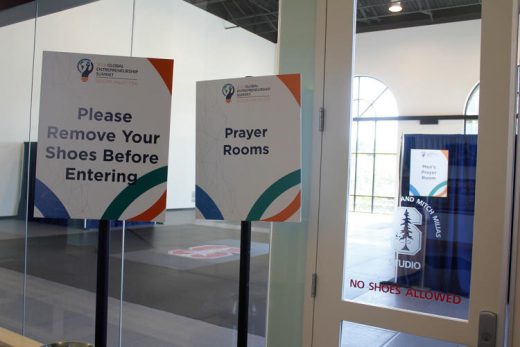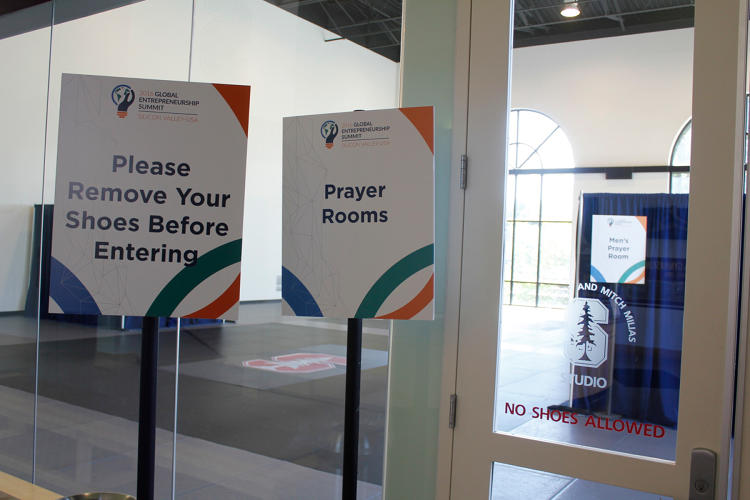Can Entrepreneurship Fight Violent Extremism?
Back in 2009, soon after he entered the White House, President Obama traveled to Egypt to give his famous “Cairo speech.” The new president pushed aside the aggressive rhetoric of the Bush years and pledged to start building bridges to the Arab and Muslim worlds. The United States wanted to improve mutual understanding between the two communities, Obama said. The West was not at war with Islam, the president continued—and further, wanted to collaborate with its adherents in fighting violent extremism.
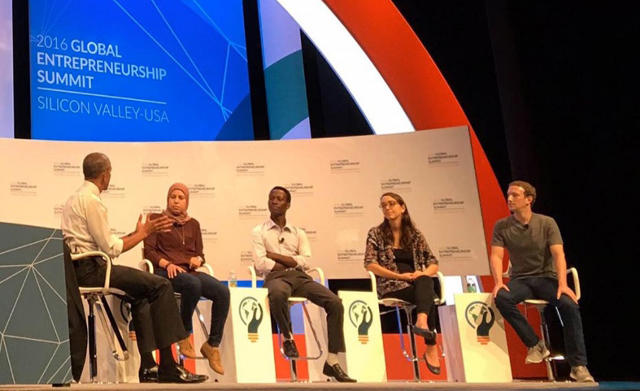
Seven years later, much of that initial promise seems optimistic given the failure of the Arab Spring, the collapse of Syria and Libya, and the emergence of the vicious terrorism of ISIS. But one of the cornerstone projects to emerge out of Obama’s shift in tone, a high-powered initiative to spur entrepreneurship overseas, still holds out hope for the prospect of a new era. The promise of opportunity and hope can serve an alternative to the “siren call” of terrorist organizations, the Obama administration believes. Give young people the chance to build their own futures, and they will choose to create rather than destroy.
U.S. embassies now offer startup training, and U.S. officials have worked to nudge other countries to develop more business-friendly legal and regulatory environments. The centerpiece of the project, though, is an annual entrepreneurship conference, which until now, was always held in an Arab or Muslim capital. This year, the last of Obama’s tenure, the State Department brought the summit to Stanford University, in Silicon Valley—ground zero for the startup movement.
More than 700 mostly young entrepreneurs from 170 different countries and territories descended on the 2016 Global Entrepreneurship Summit, where they networked with Silicon Valley’s elite, got private mentoring sessions, pitched their ideas to local investors, and attended master classes on product brainstorming, angel investing, and building startup ecosystems. Over 300 area investors and founders showed up to lend their support and expertise, among them, heavy hitters like Kleiner Perkins’ John Doerr, Uber’s Travis Kalanick, Airbnb’s Brian Chesky, and Cowboy Ventures’ Aileen Lee (known, among other things, for coining the term “unicorn”).
“The world needs your creativity and your energy and your vision,” Obama told the delegates in a keynote speech. The attendees whooped and cheered as the president took the stage. Following the speech, Facebook’s Mark Zuckerberg joined the president on stage for a chat, along with a handful of entrepreneurs, including one, Mai Medhat, from Egypt, CEO of the startup Eventtus, who sported jeans and a headscarf.
“You are going to be what helps this process of global integration work,” the president told the delegates. The world works better, he said, when people are networking, trading, and sharing ideas. “But that also means that cultures are colliding. Sometimes it’s disruptive, and people get worried,” Obama said, his words hitting home in the wake of the United Kingdom’s vote to leave the European Union, which had taken place just the day before. “You’re the bridge,” Obama told the entrepreneurs. “You’re the glue.”
The United States has always used economics to build relationships and advance its interests. What’s new here is the focus on entrepreneurship. The United States is seeking to stimulate a new generation of entrepreneurs across the globe who can both generate prosperity on their own for their countries and imagine new solutions to a range of global problems, from public health to climate change—problems which, when left unsolved, often spark strife.

“The number of problems and challenges we are facing in the world is pretty vast,” U.S. AID Administrator Gayle Smith told Fast Company. “There’s a real need for more people to be coming up with ways to solve them.”
While the focus of the summits have broadened over the years, one of its roots lies in an innovative mindset about how extremism can be defeated—not just with bombs and bullets, but by devising new narratives that young people can glom onto.
“Your optimism provides an alternative to their nihilism,” Secretary of State John Kerry told the delegates in the conference’s opening speech, referring to ISIL, Al Qaeda, and other insurgent groups. “You’re trying to build the brighter future that these folks are determined to prevent.” He said young entrepreneurs are a “living a narrative” of progress that is “diametrically opposed to the dark worldview” of terrorist organizations—many of which have proven remarkably adept at appealing to young people, both at home and in the West.
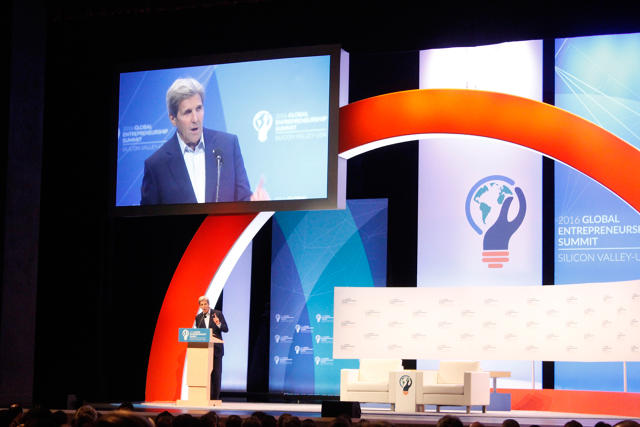
When asked about the results of this new mindset, the Obama administration points to places where entrepreneurship and economic opportunity now are thriving: a new, government-sponsored entrepreneurship center in Malaysia, a Muslim-majority country that has struggled with radicalization; more seed investment in sub-Saharan Africa; anti-corruption efforts to provide smoother paths for people trying to open small businesses.
Drawing a line between those activities and the U.S. government’s battle against terrorist organizations, however, is harder to do. It seems intuitive, of course—give people positive, hopeful options, and they’ll reject a negative ones. But there’re no Silicon Valley-style hard data on what kind of a dent the administration’s focus on entrepreneurship has made against extremism.
“It’s hard to measure, but what we’re trying to do is just to create the alternative,” Obama deputy national security adviser Ben Rhodes told Fast Company. “What we’ve learned is that, where there’s a degree of stability and where there’s openness among governments to allow for entrepreneurship, that alternative gets built, and those places have fewer challenges in radicalization than in those places where people feel hopeless.”
At least one delegate from the Middle East said she thought the summits could also help change Americans’ perspectives of the Muslim world. At the conference, a room was set aside for Muslim prayers (which must be performed five times a day), and smatterings of Arabic could be heard as suit- and jeans-wearing delegates huddled over pitch decks. “When we come from all over the world, [people in the U.S.] can see, ‘Oh, this is what they’re doing,'” said Sima Najjar, a three-time startup founder from Jordan. It’s a counter, she said, to the usual images of bombings and war. “We’re not that.”
In his speech, Obama promised that the U.S.’s focus entrepreneurship would continue even after he steps down in January. The next Global Entrepreneurship Summit, he said, has already been scheduled for next year in India.
Photo credits: All images courtesy of E.B. Boyd, except (05), courtesy of the White House.
Over 700 entrepreneurs from 170 countries descended on Stanford University for the 7th annual Global Entrepreneurship Summit.

Secretary of State John Kerry kicked off the conference, saying “We need you to utilize your business savvy, your ambition, your dream[s].”

One of the global entrepreneurs does an interview with Voice of America. Both Bloomberg TV and Al Jazeera broadcast live from the high-powered event.
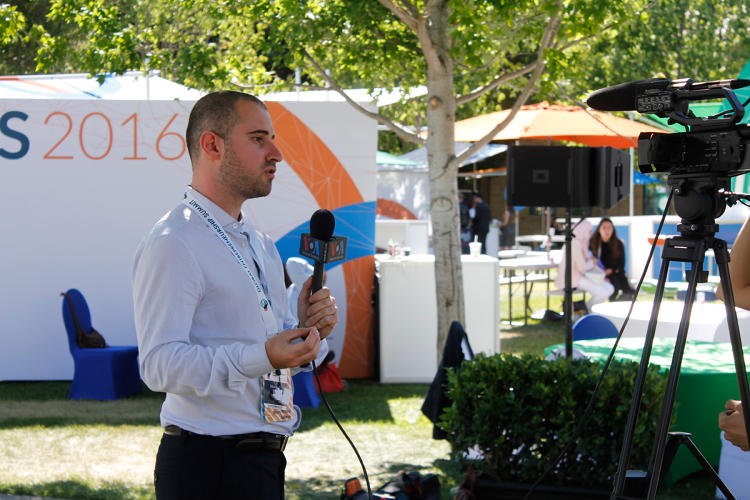
While the delegates came to learn and network, many brought pitch decks with them in the hopes of snagging some vital Silicon Valley capital.
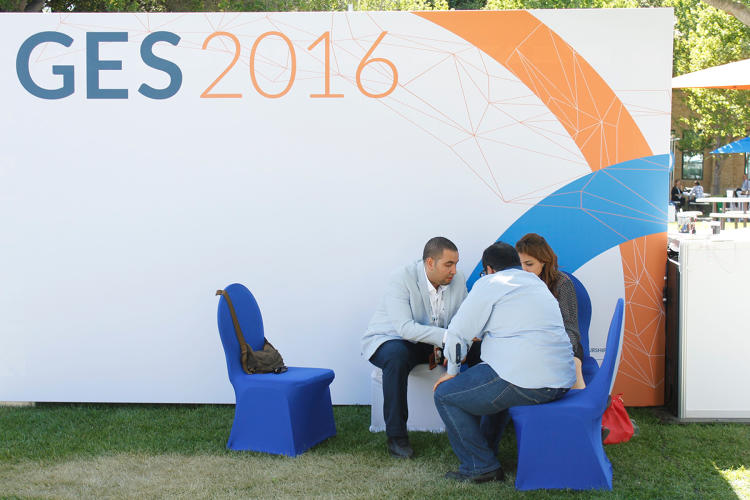
President Obama spent two days in Silicon Valley, including an on-stage chat with Facebook founder Mark Zuckerberg (r) and three entrepreneurs.

In an unusual move for a Silicon Valley conference, prayer rooms were set aside for religious Muslims, who must pray five times a day.

Many delegates said a valuable part of the conference was just networking with other entrepreneurs, saying the challenges they face are all the same.
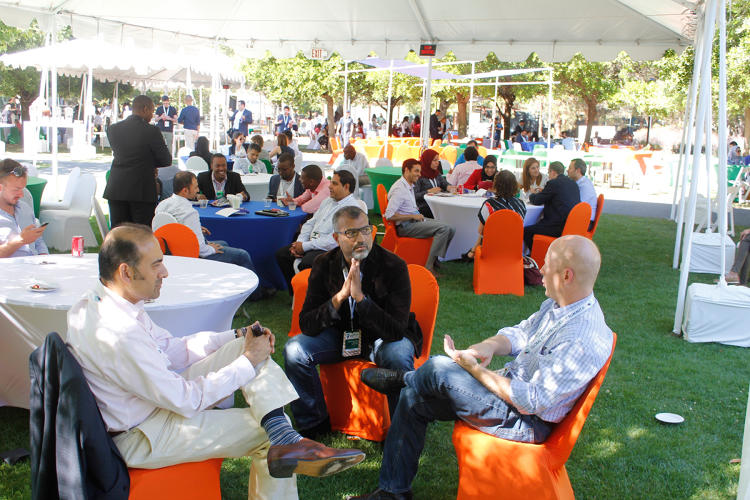
Fast Company , Read Full Story
(17)

